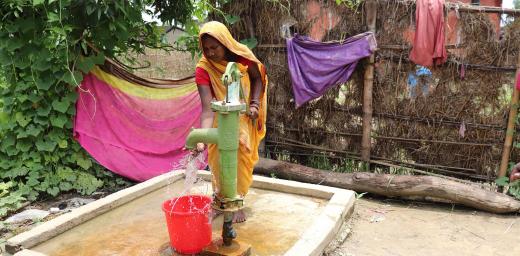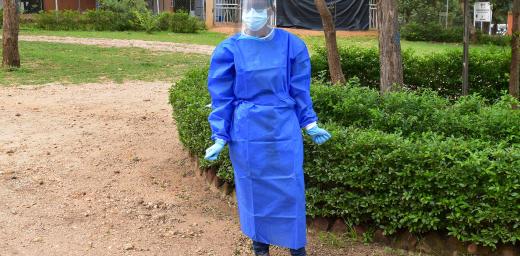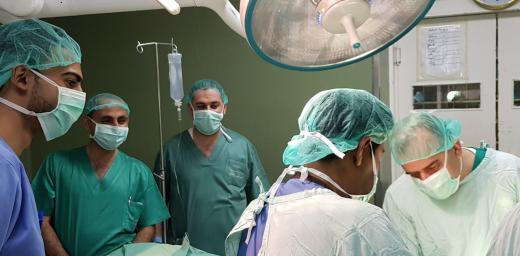COVID-19: Radio and SMS reaching people in Nepal
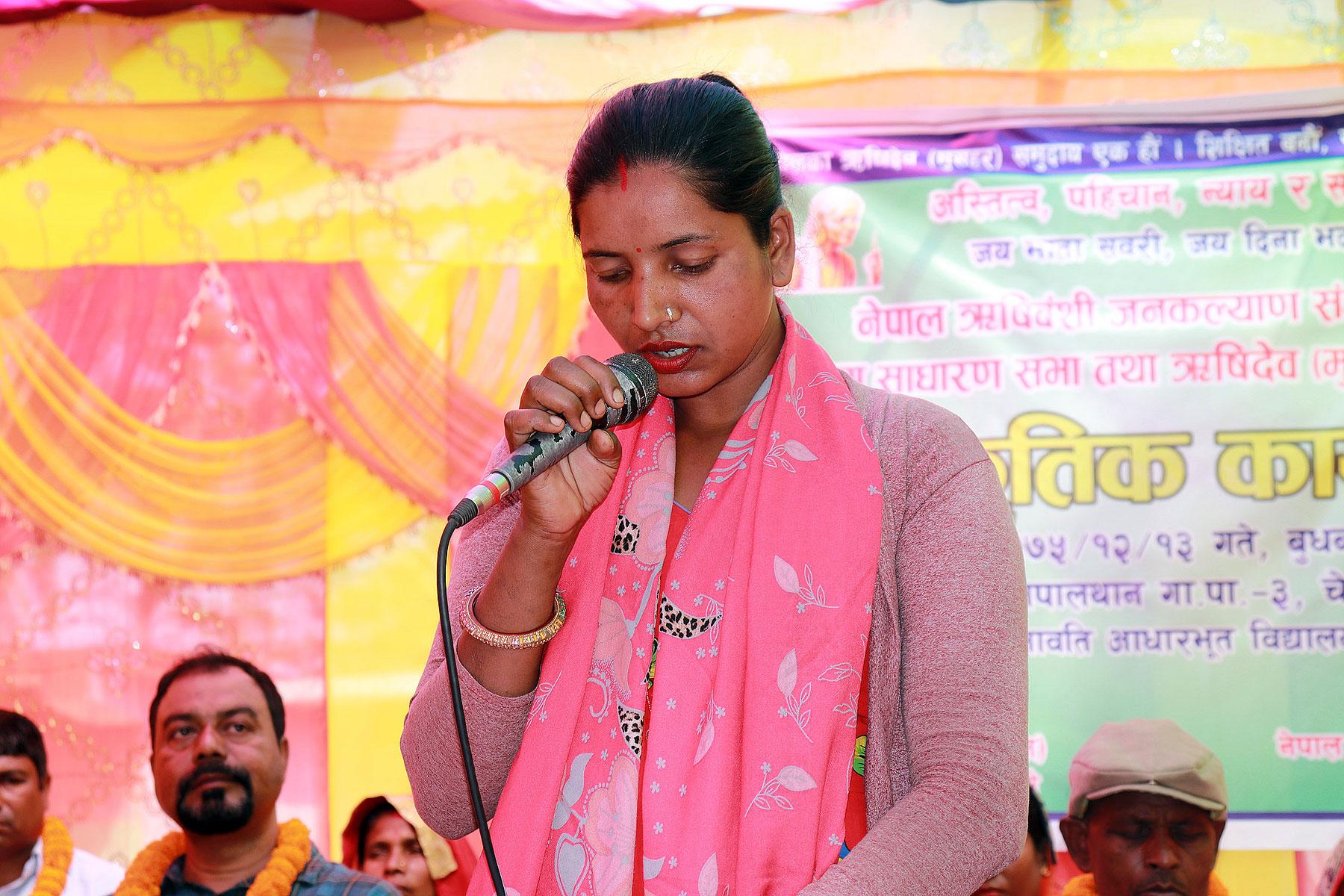
Ms. Sarashowti Rishidev, treasurer for the District Federation of Musahar Organizations supported by LWF Nepal, at a community gathering before the lockdown began. All Photos: LWF NepalÂ
LWF’s World Service program scales up response to pandemic with information and basic prevention items
(LWI) - Short text messages and radio broadcasts in local languages are among the effective ways in which the Lutheran World Federation (LWF) is providing vulnerable communities in Nepal with useful and practical information about preventing the Coronavirus disease (COVID-19).
Since the first case of infection was reported in the capital, Kathmandu in January, the government has ordered a lockdown and closed its national borders with neighboring India and China. As of 8 April, there were no deaths and only 9 confirmed cases in Nepal, but there are widespread concerns about migrant workers returning from India and Gulf States like the United Arab Emirates, which have thousands of reported cases.

Self-quarantine tents targeting people arriving in Nepal from India and other countries in Sudurpaschim Province
The LWF has been working in Nepal since 1984, providing emergency relief, supporting refugees, host communities and internally displaced people to manage disasters and risks and improve their livelihoods. Many of them are marginalized and have special needs since they live in the poorest and most remote parts of the country. LWF’s World Service staff is now confronted with new challenges that the Coronavirus brings to the most vulnerable people they serve, including former bonded laborers, single women and survivors of gender-based violence, people with disabilities, Dalits and other ethnic minorities.
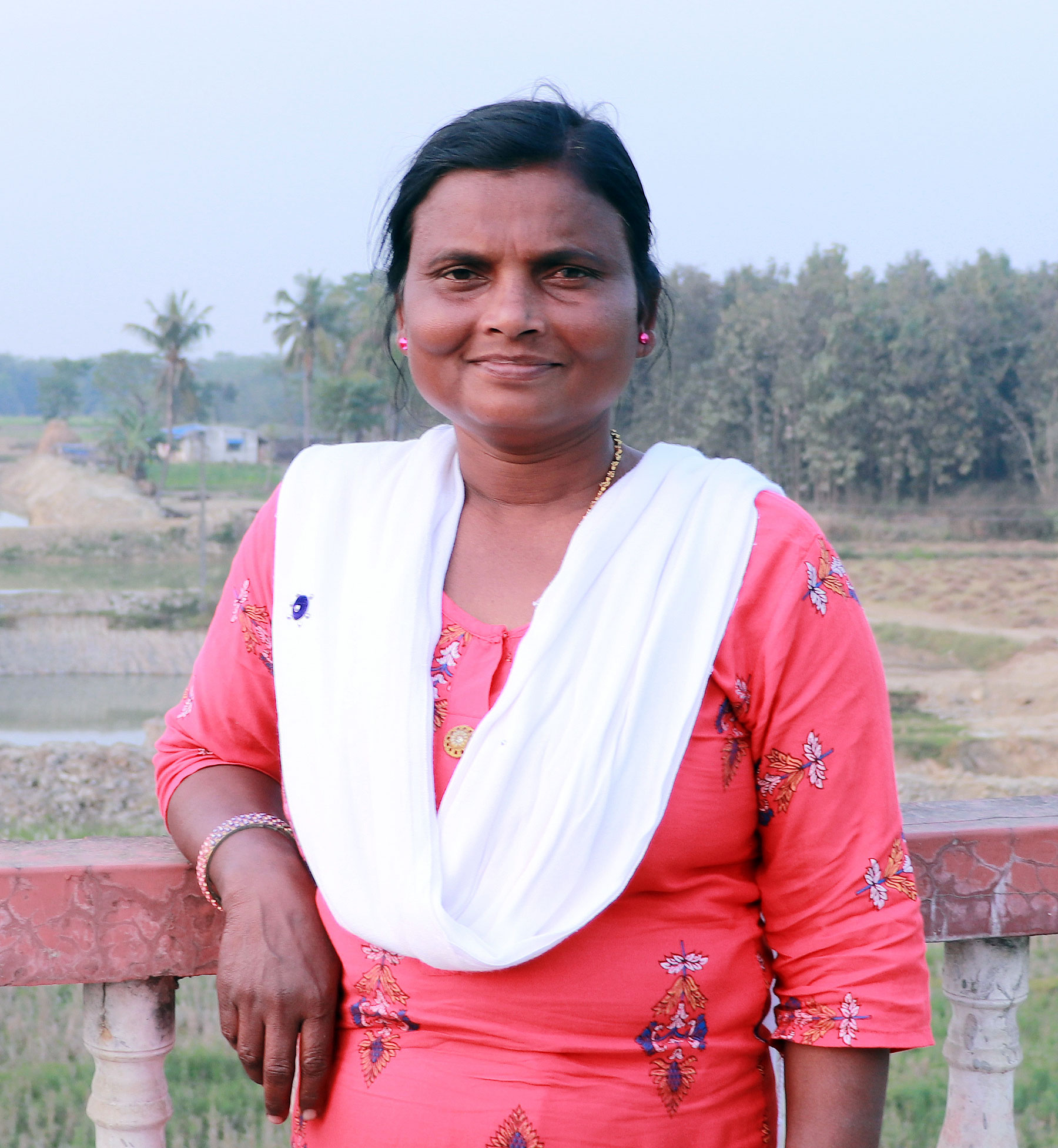
Ms. Sushila Murmu, a Ward Member for Rangeli Municipality in south-eastern Nepal
Ms. Sushila Murmu, a Ward Member for Rangeli Municipality in the south-east of the country, says: “We are so thankful to LWF Nepal and its implementing partner, the Lutheran Community Welfare Society (LCWS)” for their text messages that are helping to dispel the “myths and fake news that have been spreading” through rural villages about the Coronavirus and its consequences. She is sharing the messages with colleagues at the Municipality and using social media to inform people about hand washing, hygiene, social distancing and other ways of preventing a further spread of the virus.
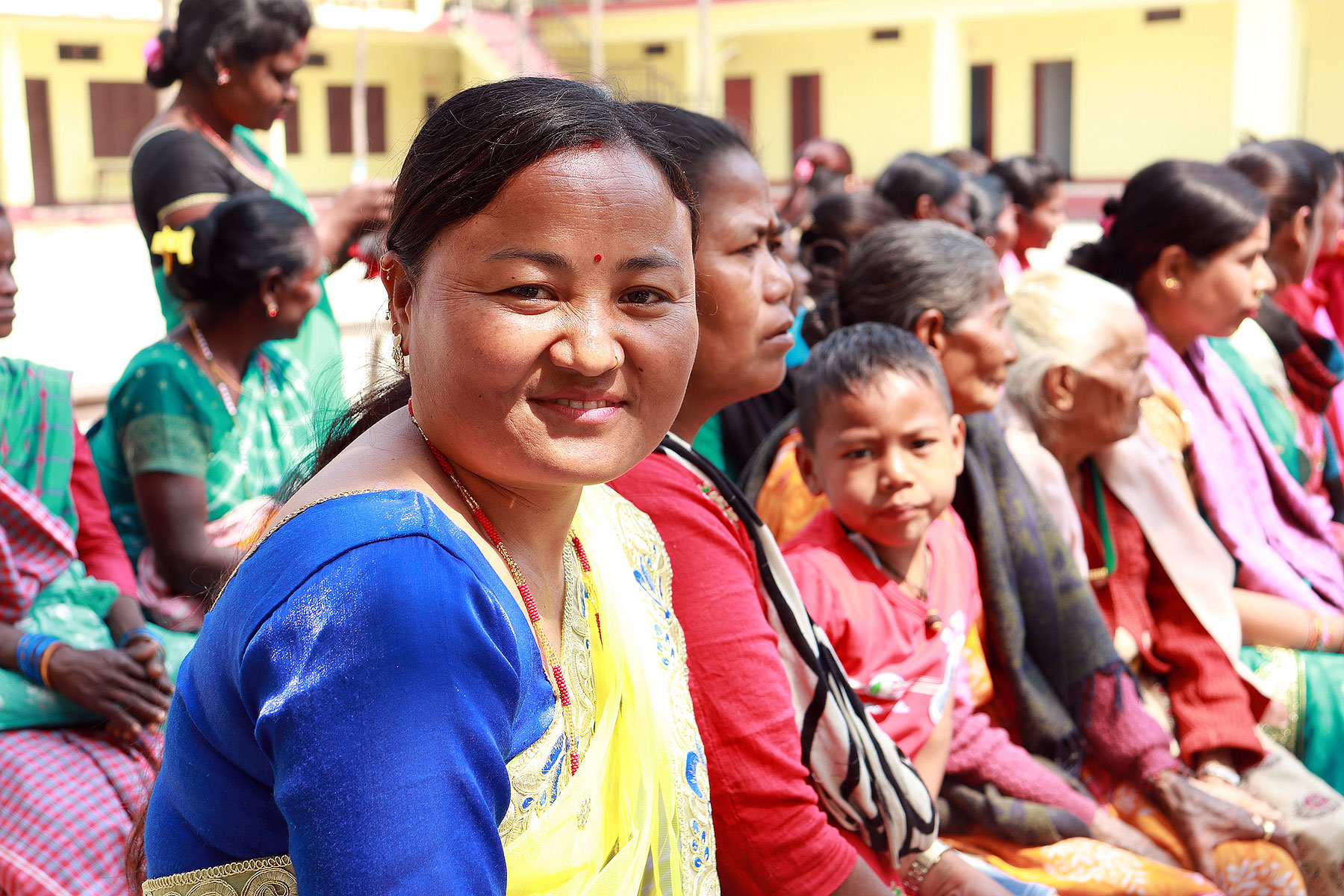
Ms. Nirmala Magar is a Social Mobilizer with the Lutheran Community Welfare Society, an implementing partner for LWF in Kanepokhari Rural Municipality, Morang district
“COVID-19 has changed our role at the moment,” explains Ms. Nirmala Magar, who works with the LCWS in Kanepokhari Rural Municipality in Morang district on the southern border with India. All meetings and most regular project-related activities have been suspended so community leaders are focusing on translating and communicating information from the World Health Organization and local government authorities.
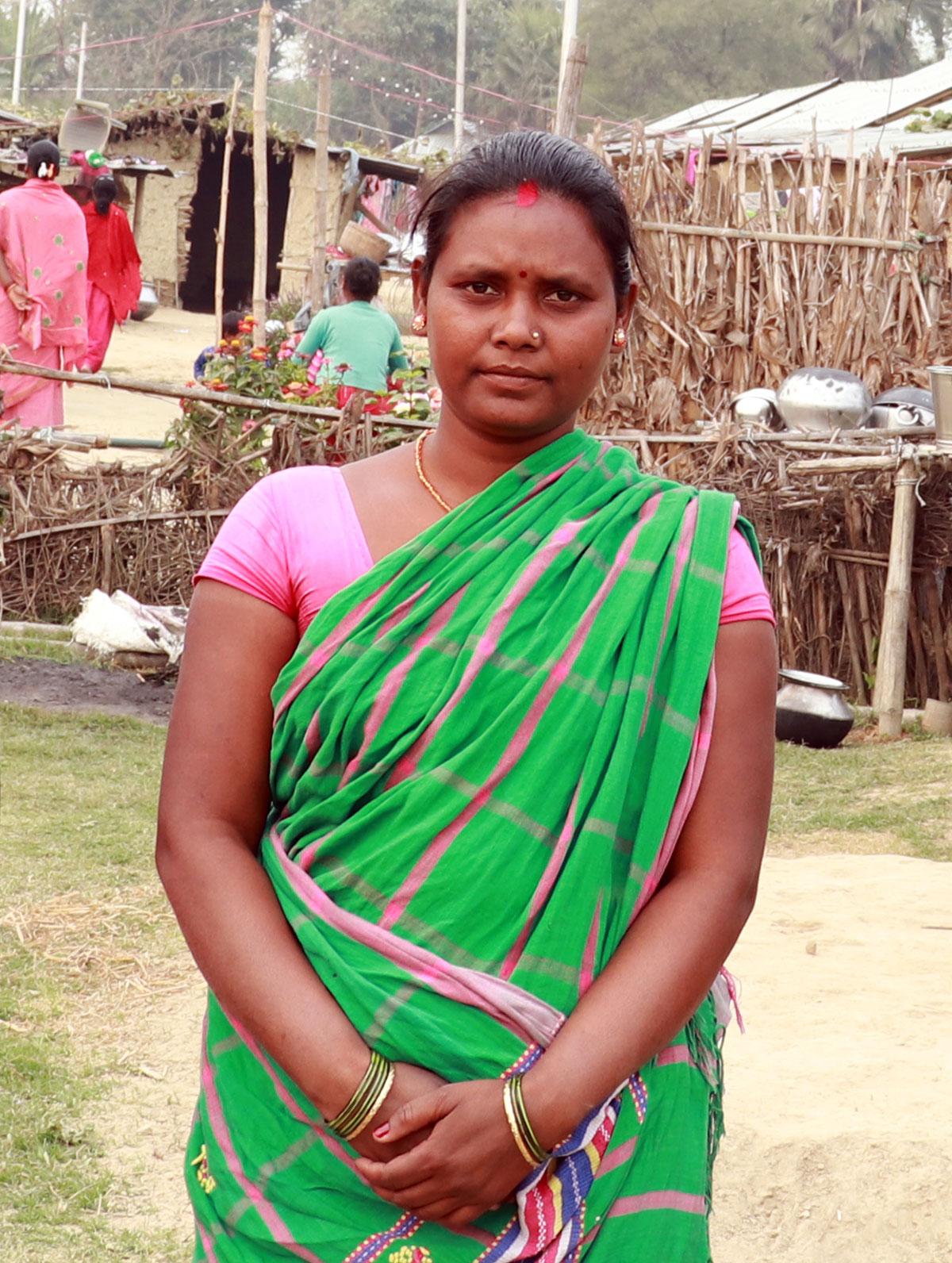
Ms. Phatima Hemrum, chairperson for a saving and credit group supported by LWF Nepal in Morang district
Messages are being broadcast on local FM radio stations in the Santhali language since many people, especially the elderly, are not able to read government leaflets or understand information in Nepali. “There are 31 families from my village, most of whom cannot read SMSs,” says Ms. Phatima Hemrum, chairperson for a saving and credit group in Morang district, “however I have asked them to get support from their school-going children and now our children are encouraging us to follow those instructions!”
The lockdown has caused a loss of income for many communities that were dependent on casual labor or remittances sent home by family members working abroad. Many people lack money to buy basic items such food or medical supplies.
We feel so happy to know that others are thinking about us and are concerned about our safety at this difficult time.
LWF’s World Service program in Nepal aims to respond to the Covid19 pandemic through scaling up distribution of WASH (Water, Sanitation and Hygiene) items and is establishing hand washing stations at strategic locations. Staff are working hard to best respond to the food shortages affecting families, especially in Western Nepal. Moreover, they are busy exploring the best ways of providing psychosocial support for those experiencing discrimination or feeling anxious and hopeless, now and in the critical months ahead.
“I feel moved and emotional,” says Ms. Phatima Hemrum, “when I see the Lutheran text messages that I can share widely with my colleagues and with our communities. We feel so happy to know that others are thinking about us and are concerned about our safety during these difficult times.”


